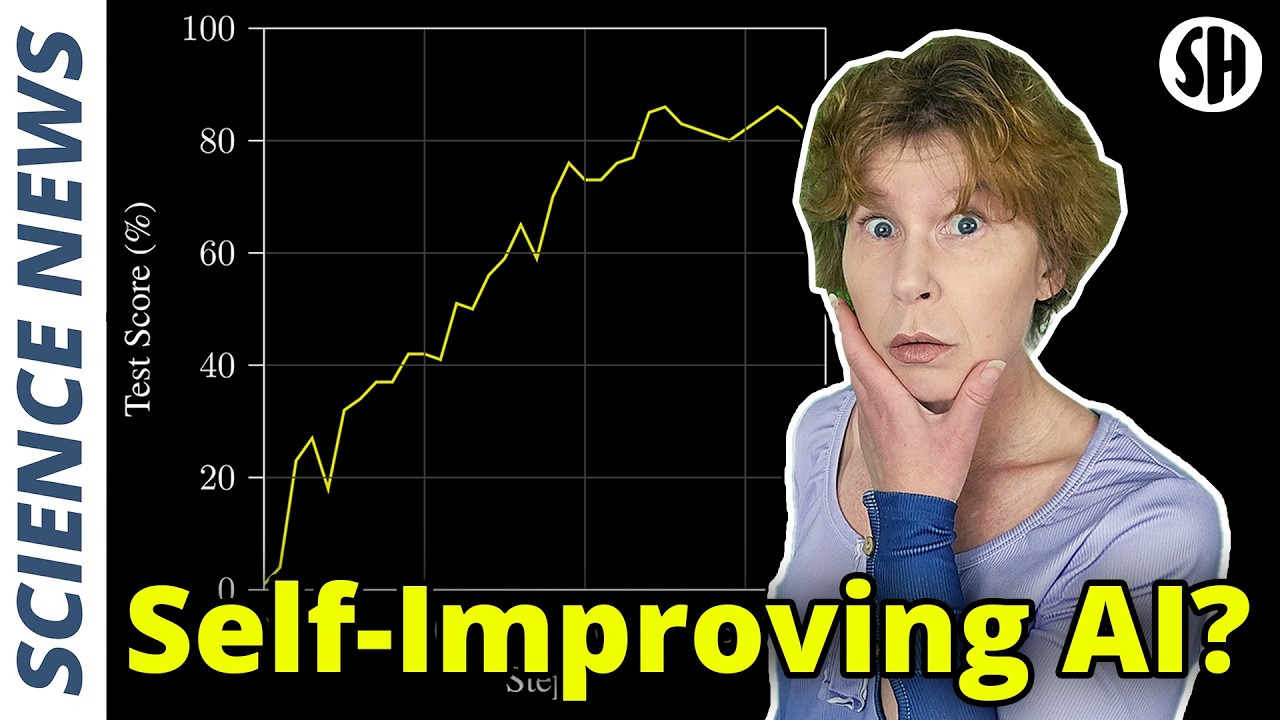The video explains that an “intelligence explosion” driven by AI self-improvement could lead to rapid, exponential growth in AI capabilities, potentially resulting in a technological singularity. While recent developments show promising progress in autonomous self-tuning and code evolution, significant technical challenges remain before such rapid growth can be achieved at scale.
The video discusses the concept of an impending “intelligence explosion” driven by artificial intelligence systems that can improve themselves through recursive self-improvement. While AI development currently appears slow, many researchers believe that once AI systems begin to enhance their own code, they will rapidly surpass human intelligence, creating an exponential growth in capabilities. This development could lead to a fundamental shift in technology and society, often referred to as the “singularity,” though the term has fallen out of favor due to its association with black holes and apocalyptic scenarios.
Recent advancements showcase how AI systems are approaching self-improvement. Google’s DeepMind introduced Alpha Evolve, an AI that mimics natural evolution by making random changes to code and selecting the best results, leading to more efficient algorithms such as improved matrix multiplication. Other research includes models that can simplify and solve increasingly complex problems, like advanced integrals, and those that can modify their own hyperparameters by generating training questions. These are incremental steps toward AI systems that can autonomously improve and adapt themselves without human intervention.
Despite progress, current self-improvement methods are limited. For instance, a new approach allows large language models to self-tune their hyperparameters by creating and training on self-generated questions, leading to performance gains but also issues like catastrophic forgetting, where the AI loses earlier training knowledge as it modifies itself. These methods show promising signs but are still in the experimental phase, highlighting that true self-rewriting AI is not yet achievable at scale and remains a complex research challenge.
The closest recent development involves an AI called the Darving Goodle machine, which can edit its own Python code by generating mutations, evaluating them on benchmarks, and retaining the best versions. While this system still operates within small code changes and constrained environments, it demonstrates the potential for AI to evolve programs independently. If scaled and freed from current constraints, such systems could fundamentally change the design of software and AI models, leading to rapid self-improvement and increased capabilities.
In conclusion, the field is moving toward AI systems that can self-improve, but significant technical hurdles remain before an explosion of intelligence can fully occur. Current projects are small but promising indicators of future possibilities. As these advancements develop, they could lead to an era of rapid AI growth—an exciting but potentially risky frontier. The speaker humorously hopes that this “intelligence explosion” doesn’t happen unexpectedly, joking about having it fall on a Sunday to avoid ruining the week.
